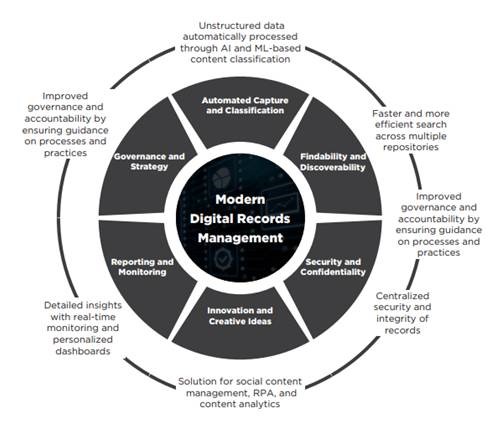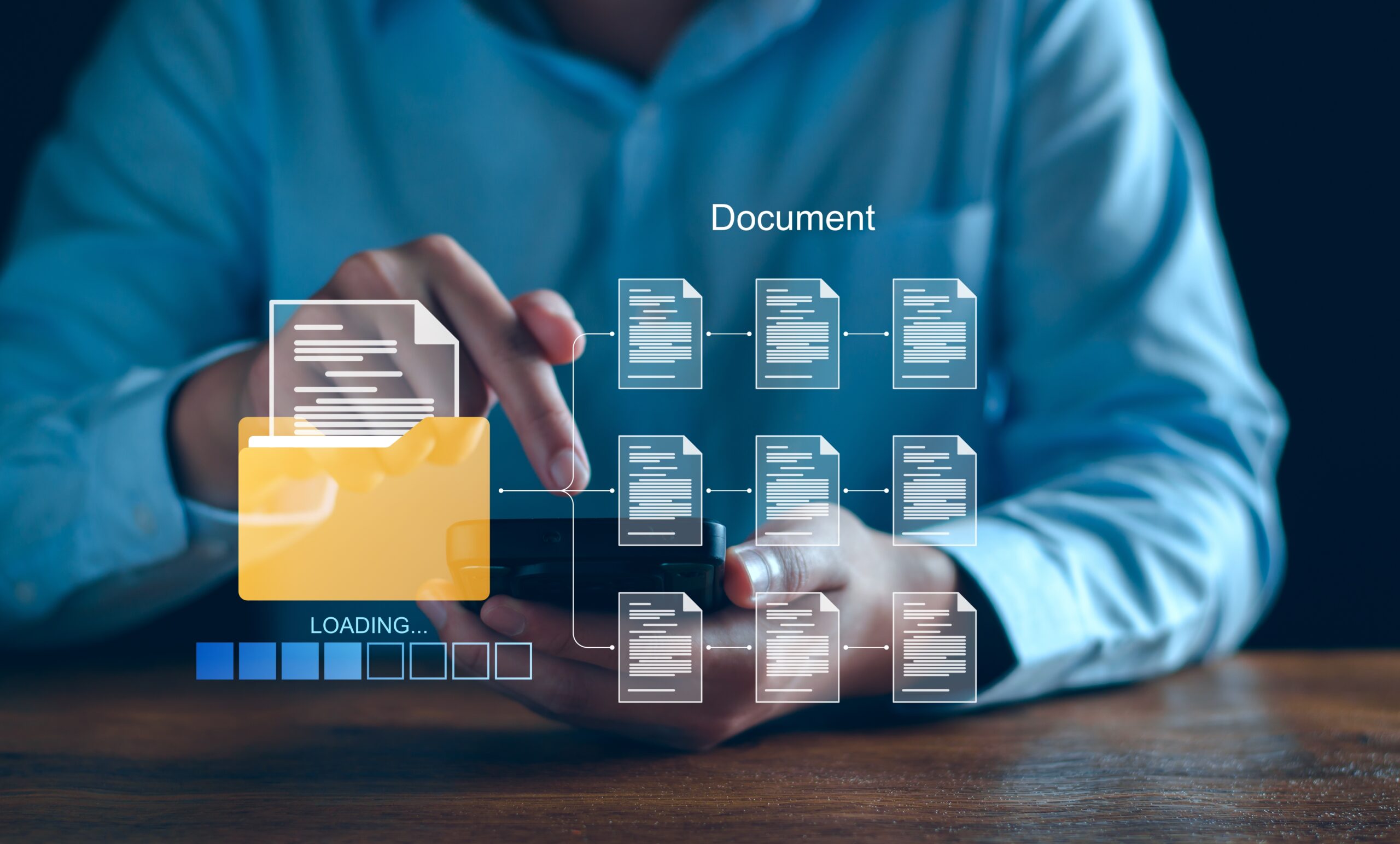‘Records management’– what comes to mind when you hear this term?
You may think about information management, record-keeping, archival, or something similar. However, as you deep-dive into the subject, you will realize it is much more than that. Records management can be a strategic path toward compliance, efficiency, collaboration, and accountability – if done right.
Organizations like insurance companies and government agencies need to maintain the security of organizational records, ensure controlled access, and adhere to regulatory requirements. Records management is a streamlined approach towards achieving these goals while managing enterprise-wide records, right from creation to disposal.
Why is a Records Management System Required?
Organizations often face various challenges while managing records, including:
- Lack of effective collaboration across departments
- High costs associated with data storage
- Threat of losing critical organizational data
- Absence of data disposition policies
- Insecure data storage
- Risk of non-compliance
Despite the challenges, organizations often carry on with their existing, ineffective techniques and practices, overlooking the tremendous value a records management software has to offer. It’s like walking from Barbados to Saint Lucia instead of taking a 30-minute flight. It’s not like someone can’t reach there on foot, but why waste so much effort and time?
Let’s understand how a records management system changes the entire picture with some top frequently asked questions (FAQs).
What is a Records Management System?
A records management system addresses all the above challenges while enabling end-to-end records management, controlled access, and adherence to various regulatory requirements. A robust system for records and information management allows users to capture, automate, classify, process, and view all content types, from physical documents and emails to social media content.
The system offers a host of features, such as indexing, archival, movement tracking, and search. It can also help define rules for filing, retaining, and preserving various records.
What Makes a Records Management System Important?
Enterprise-wide records contain strategic or non-strategic information and are meant to be identified, preserved, and destroyed in accordance with the organization’s guidelines and rules. Also, organizations must ensure that these records are stored without duplicity and should be timely accessible in a hassle-free manner. A records management solution helps organizations enforce these records governance norms and saves time and costs.
What are the Key Features of an Ideal Records Management System?

Important records management system features include:
Support for Rules and Multiple Record Types:
Enforcement of filing and retention rules to keep the records active for a pre-defined period with rules for archival and destruction is an important feature of the system. It enables rights allocation for controlled access and allows tracking of physical movement of records. The system also supports various physical records and boxes through barcoding and indexing, apart from supporting electronic records like doc, ppt, xls, pdf, pdf/a, tiff, jpeg, etc., and email and social records.
Automated Records Management Policies and Classification:
An ideal system defines the movement of physical records from one location to another and that of electronic records from one server to another to enable multi-stage processing. It ensures seamless policy management using rule definitions, such as cut-off rollover, retention, storage, and more. Also, it lets organizations classify and index records (based on various classes, files, and file parts), supports bulk operations and allows location mapping for easy access.
Vital Records Management:
Identifying and managing vital records is critical to business operations. The system should ensure business continuity in case of disasters or other unforeseen circumstances and allow organizations to review vital records periodically.
Email Archival and Legal Hold:
An ideal system should allow organizations to monitor internal and external email content, integrate with MS Outlook for rule-based archival, and adhere to email retention policies. Also, it must enable multiple users to simultaneously suspend a single file part or record to support multiple legal hold and preserve relevant information by disabling destruction process for some time.
Easy Search and Retrieval:
The system must offer easy search and retrieval capabilities, allowing users to access records, documents, and folders with the help of the associated metadata, and full-text search on entire content.
Comprehensive Reports and Enterprise-wide Security:
Generating administrative and transfer activity reports is key for efficient records management. The system must generate various administrative reports such as borrower overdue, dispose, document, file plan, request return, user activity, group privilege, and transfer activity. Also, it should offer robust security features, including SSO support for LDAP-based authentication, rights-based access on file plans, records, return requests, and overdue items, and administrative functions like report generation and rules definition.
Social Records Management:
Smooth handling of social records by monitoring social media pages and automating messages and chat replies is critical to the system. The system should be able to segregate posts into different categories like complaint, request, profanity, and more. It should allow users to archive social messages as records and view and search social media conversation threads.
What are the Benefits of a Records Management System?
- Better accountability by maintaining the authenticity, reliability, and integrity of records
- End-to-end management of records, from creation to disposition
- Seamless collaboration across departments
- Increased efficiency by reducing the dependency on paper-based documents
- Fast and easy access to critical information for an improved decision-making
- Higher level of security against any unauthorized access to records and a lower risk of incidents such as document tampering, corruption, information leaks, and disappearance
A robust records management system is crucial for organizations to efficiently manage and administer large volumes of physical documents. Download this eBook to identify challenges associated with managing records and learn how to overcome them with a robust electronic documents and records management system.
You might be interested in

22 Jan, 2026
Why storing everything is not the optimal email archiving strategy for 2026



